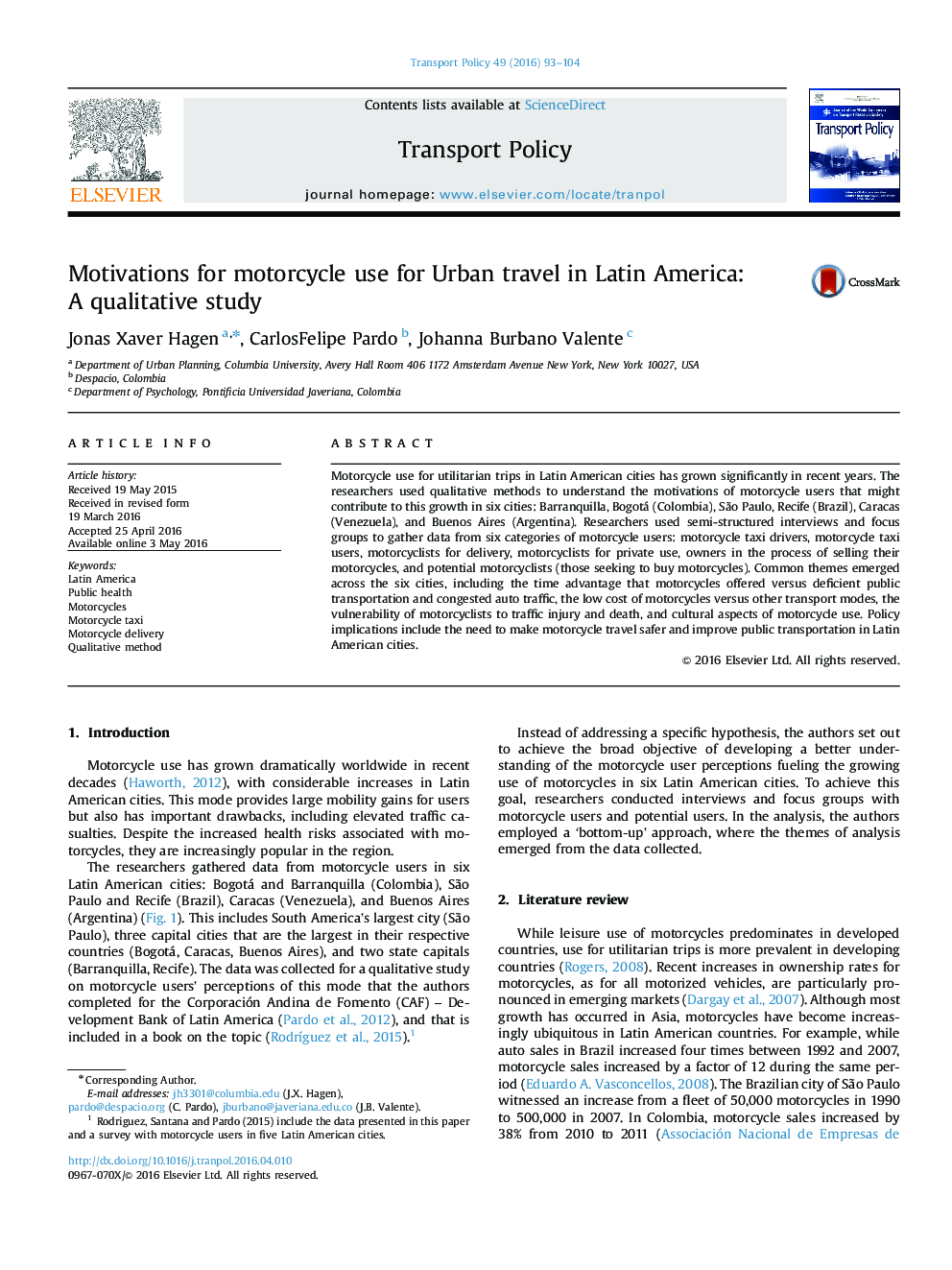| Article ID | Journal | Published Year | Pages | File Type |
|---|---|---|---|---|
| 1064776 | Transport Policy | 2016 | 12 Pages |
•We carried out interviews and focus groups with urban motorcycle transport users.•Motorcycles offered participants important time and cost advantages.•Participants recognized the high risk of traffic injury and other health issues.•The research revealed important social aspects of motorcycle use.•Policy implications include the need to improve public transportation.
Motorcycle use for utilitarian trips in Latin American cities has grown significantly in recent years. The researchers used qualitative methods to understand the motivations of motorcycle users that might contribute to this growth in six cities: Barranquilla, Bogotá (Colombia), São Paulo, Recife (Brazil), Caracas (Venezuela), and Buenos Aires (Argentina). Researchers used semi-structured interviews and focus groups to gather data from six categories of motorcycle users: motorcycle taxi drivers, motorcycle taxi users, motorcyclists for delivery, motorcyclists for private use, owners in the process of selling their motorcycles, and potential motorcyclists (those seeking to buy motorcycles). Common themes emerged across the six cities, including the time advantage that motorcycles offered versus deficient public transportation and congested auto traffic, the low cost of motorcycles versus other transport modes, the vulnerability of motorcyclists to traffic injury and death, and cultural aspects of motorcycle use. Policy implications include the need to make motorcycle travel safer and improve public transportation in Latin American cities.
